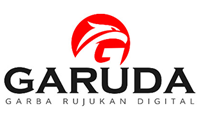COVID-19 TERMINOLOGIES: THE EXTENT OF STUDENT’S VOCABULARY ACQUISITION DURING LEARNING FROM HOME
Abstrak
The coronavirus pandemic has affected the lives of people across the globe which forced students to work from home. In the education sector, students are strongly suggested to stay home and study from home. Consequently, online learning becomes a necessary learning process during the outbreak of COVID-19. Students are expected to be active in engaging themselves in learning. Suddenly they are confronted with many terminologies concerning classroom interaction. Many students found some of the terminologies confusing. This study was intended to find out the students' acquisition of COVID-19 terminologies which are commonly used in classroom interaction. The study found that students have inadequate comprehension of COVID-19 terminologies although they are widely exposed to terminologies in their daily life. Only common terminologies were comprehended appropriately. This study implies that a learning program should be provided to improve students' acquisition of COVID-19 terminologies
Referensi
Alsaaw, A. A. (2013) To What Extent Guessing The Meaning From The Context, Is Helpful In Teaching Vocabulary. ARECLS, Vol.10, 130-146.
Alqahtani, M. (2015). The Importance of Vocabulary In Language Learning and How To Be Taught. International Journal of Teaching and Education, Vol. III(3), pp. 21-34.,10.20472/TE.2015.3.3.002
Annisa, A. (2013). Techniques In Presenting Vocabulary To Young EFL Learners. Journal of English and Education, 1(1), 11-20
Biemiller, A., & Boote, C. (2011). An Effective Method For Building Meaning Vocabulary in Primary Grades. Journal of Educational Psychology, 98(1), 44-62. doi: 10.1037/0022-0663.98.1.44
Carabott, K. (2014). Spelling and Vocabulary. Unpublished Manuscript, EDF5712, Monash University, Melbourne, Victoria, Australia
Gardner, D. (2013). Exploring vocabulary: Language in action. Milton Park, Abingdon: Routledge
Handayani, ND., Widiastuti, IAMS. (2019). Integrating Quantum Learning to Improve Students’ linguistic Competence. International Journal of Linguistics and Discourse Analytics, 1 (1), 22-28
Liu, D. (2014). Describing And Explaining Grammar and Vocabulary in ELT: Key Theories and Effective Practices. New York: Routledge
Widiastuti, I. A. M. S., Mukminatien, N., Prayogo, J. A., & Irawati, E. (2020). Dissonances between Teachers’ Beliefs and Practices of Formative Assessment in EFL Classes. International Journal of Instruction, 13(1), 71-84. https://doi.org/10.29333/iji.2020.1315a.
Widiastuti, IAMS. (2011). Improving English Vocabulary Ability Through Word Search Game of The Seventh Grade Students of SMPN 2 Abiansemal In Academic Year 2009/2010. Jurnal Santiaji Pendidikan (JSP) 1 (1), 51-61








